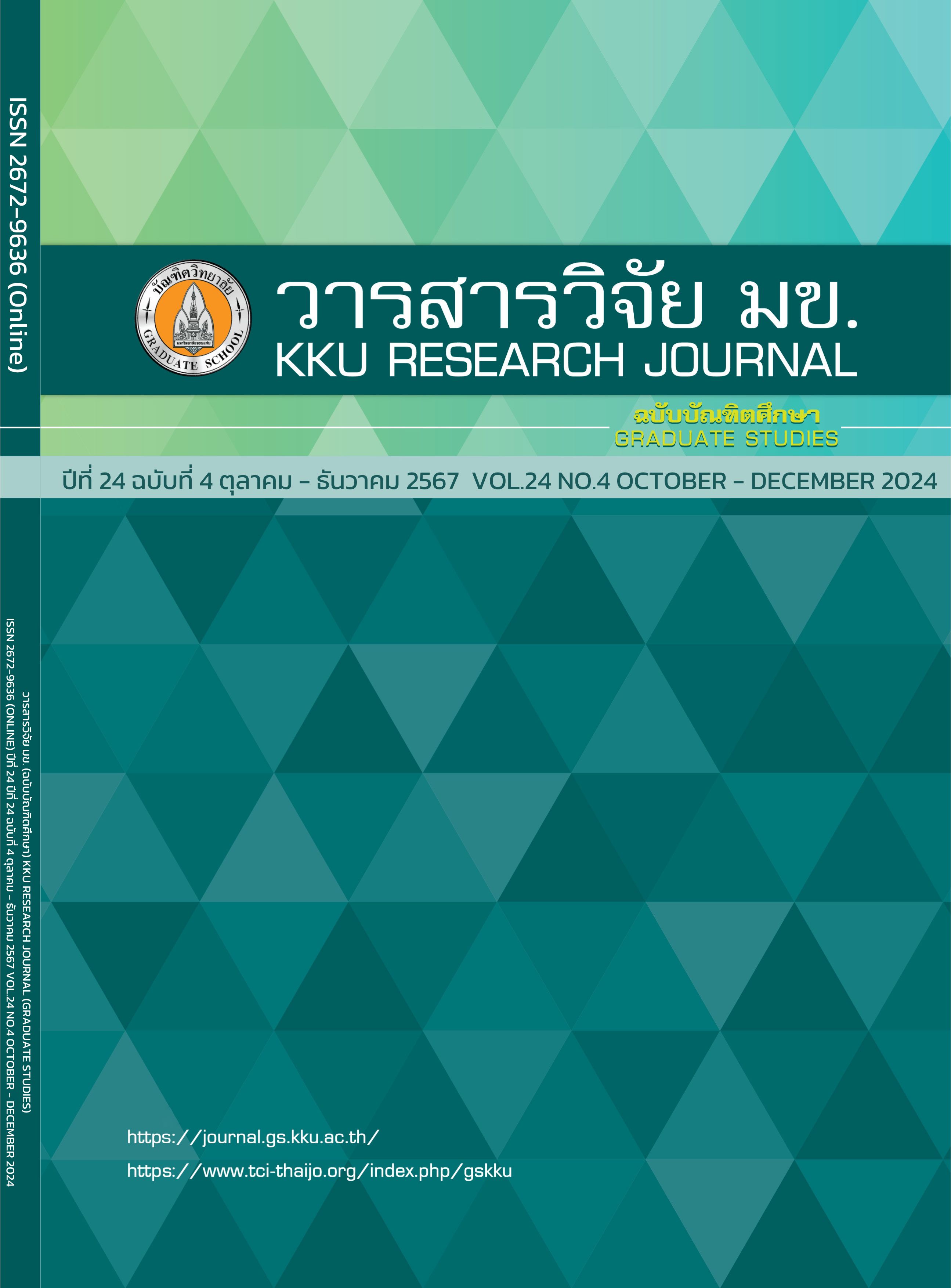A Duration-of-stay-based Storage Assignment Policy in a Warehouse: A Case Study of the Warehouse of a Beverage Company in the Northeast of Thailand
Keywords:
Warehouse, Storage assignment problem, Duration-of-stayAbstract
In this paper, a duration-of-stay-based storage assignment policy in a warehouse is proposed. The purpose of this policy is to reduce the traveling distance of the pickers in the picking activity. A warehouse of a beverage company located in the northeast of Thailand is used as the case study. The result of the study shows that by applying the proposed policy, the traveling distance of the pickers will decrease by 186,751.524 meters/month or 14.59%. Besides, this proposed policy allows employees to work more conveniently since each product type is stored in the dedicated area according to the duration-of-stay of the product.
References
Rushton A, Croucher P, Baker P. The handbook of logistics and distribution management. 7th ed. London: Kogan Page; 2022.
Tompkins JA, White JA, Bozer YA, Tanchoco JMA. Facilities planning. 4th ed. New Jersey: John Wiley & Sons; 2010.
Richards G. Warehouse management. 3rd ed. London: Kogan Page; 2018.
Habazin J, Glasnović A, Bajor I. Order picking process in warehouse: Case study of dairy industry in Croatia. Promet - Traffic Transp. 2017; 29(1): 57–65. https://doi.org/10.7307/ptt.v29i1.2106
Caron F, Marchet G, Perego A. Layout design in manual picking systems: A simulation approach. Integr Manuf Syst. 2000; 11(2): 94–104. https://www.emerald.com/insight/content/doi/10.1108/09576060010313946/full/html
Goetschalckx M, Ratliff HD. Shared storage policies based on the duration of stay of unit loads. Mgmt Sci. 1990; 36(9): 1120-1132. https://doi.org/10.1287/mnsc.36.9.1120
Hausman WH, Schwarz LB, Graves SC. Optimal storage assignment in automatic warehousing systems. Mgmt Sci. 1976; 22(6): 629-638. https://doi.org/10.1287/mnsc.22.6.629
Graves SC, Hausman WH, Schwarz LB. Storage-retrieval interleaving in automatic warehousing systems. Mgmt Sci. 1977; 23(9): 935-945. https://doi.org/10.1287/mnsc.23.9.935
Schwarz LB, Graves SC, Hausman WH. Scheduling policies for automatic warehousing systems: Simulation results. AIIE Trans. 1978; 10(3): 260-270. https://doi.org/10.1080/05695557808975213
Roodbergen KJ, Vis IFA. A survey of literature on automated storage and retrieval systems. Eur J Oper Res. 2009; 194: 343–362. https://doi.org/10.1016/j.ejor.2008.01.038
Bahrami B, Piri H, Aghezzaf EH. Class-based storage location assignment: An overview of the literature. In Proceeding of the 16th International Conference on Informatics in Control, Automation and Robotics; 2019 July 29-31; Prague, Czech Republic. https://biblio.ugent.be/publication/8642650
Kasemset C, Sudphan J. Warehouse storage assignment: The case study of a plastic bag manufacturer. 2014 IEEE International Conference on Industrial Engineering and Engineering Management; 2014 Dec 9-12; Selangor, Malaysia. https://ieeexplore.ieee.org/document/7058632
Meeprasert P, Niyamosoth T. A class-based storage assignment policy in a distribution center. Case study: A distribution center of a beverage company in the northeast of Thailand. KKU Res J. 2023; 23(3): 13-24. Thai. https://ph02.tci-thaijo.org/index.php/gskku/article/view/246702
Downloads
Published
Issue
Section
License
Copyright (c) 2025 KKU Research Journal (Graduate Studies)

This work is licensed under a Creative Commons Attribution-NonCommercial-NoDerivatives 4.0 International License.



